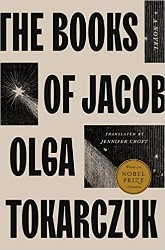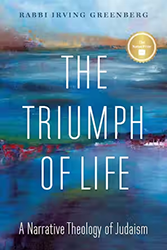What does it mean to see?
In front of me, I see Adam Ehrlich Sach’s new novel, The Organs of Sense. Here’s a brief description of its eye-catching cover. As you can see, an emerald green background is adorned with what looks like a cutout paper doll of a bearded man’s torso and head — or, more accurately, a set of lines, colors, and shapes that most human eyes would recognize as a human figure. But the figure has two black geometric stars where its eyes should be, and floating around it are the star-shaped, flesh-colored, eye-containing cutouts, the would-be products of a star-shaped cookie cutter. Immediately, eyes or lack thereof seems as if it will be an important aspect of this novel. Probably stars, too.
The age-old advice not to judge a book by its cover might come to mind. And indeed, any reader who does that, and does not then ask themselves if they can or should trust or draw any conclusions from what they have seen or believe they have seen, has missed the point of this novel. Because The Organs of Sense, although “about” a blind seventeenth-century astronomer’s far-fetched prediction, is really about perception: how it works, why we trust it, if indeed we should trust it, how it relates to knowledge, how it relates to reality.
In sprawling, self-referential prose characterized by an almost boundless amount of information, internal debate, philosophical inquiry, and circularity, Sachs relates the story of how the astronomer lost his eyes and came to make his dramatic prediction. It is a dense, cerebral story that encompasses kings, art, family dynamics, Catholicism, violence, and much more, all the while interrogating the natures of vision, intellectuality, sanity, and other such trivia. The story is filtered several times before it gets to the reader: Sachs’s narrator recounts the experience of Gottfried Leibniz (the real-life mathematician who invented calculus), who heard the story from the astronomer. The narrator alludes to the third hand nature of the narrative repeatedly, as if to remind the reader that stories, like all aspects of human perception of the world, are subjective. On every level, from the astronomer’s prediction to his life story to the way it is told to Leibniz to the way the narrator presents it to the novel’s ultimate punchline, The Organs of Sense is about the relationship between what we see, what we believe, and what actually exists. Sachs manages to address these profoundly philosophical topics from several angles, while still maintaining a darkly comic sensibility that has echoes of Pynchon and DeLillo. Anyone interested in the nature of ideas, especially but not only mathematical and scientific ones, is likely to appreciate this absurd, witty novel. Sachs’ work is, it must be said, visionary.
At least that’s how I saw it.
Miranda Cooper is a NYC-based writer, editor, and literary translator. Her literary criticism, essays, and translations of Yiddish fiction and poetry have appeared in a number of publications including Jewish Currents, Kirkus Reviews, the Los Angeles Review, Pakn Treger, and more. In 2019, she was named an Emerging Critic by the National Book Critics Circle. She is also an editor at In geveb: A Journal of Yiddish Studies.





